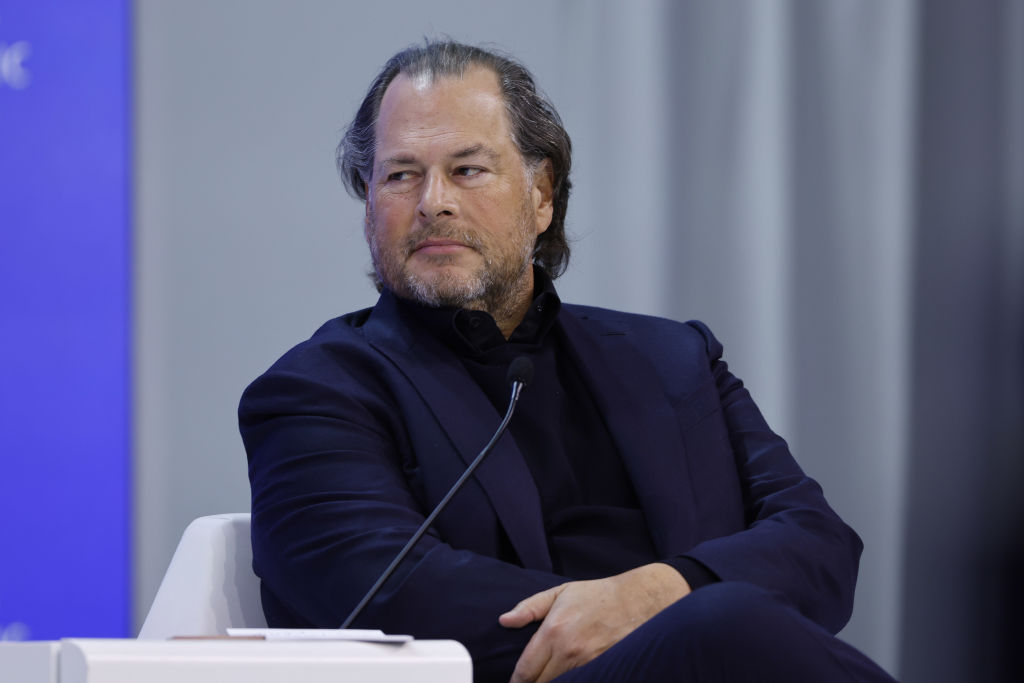
Marc Benioff, the high-profile co-founder and CEO of Salesforce, recently found himself at the center of a political storm after expressing support for deploying the National Guard in San Francisco. His comments, which drew sharp criticism from local officials and long-time allies alike, were later walked back, marking a dramatic shift in his public stance.
The controversy began when Benioff, in an interview with The New York Times, endorsed President Donald Trump’s suggestion to send National Guard troops to San Francisco and other Democratic-led cities. Benioff, who has historically leaned liberal, seemed to align himself with Trump’s policies, even going so far as to say, “I fully support the president,” and praise Trump for “doing a great job.” The remarks were particularly surprising given Benioff’s reputation as a progressive voice in the tech industry, where he has championed causes like LGBTQ+ rights and affordable housing.
Benioff’s comments appeared to stem from concerns over public safety costs associated with Salesforce’s massive Dreamforce conference, which took place in San Francisco last week. However, his endorsement of Trump’s National Guard plan sparked immediate backlash. Prominent figures in the tech and political worlds were quick to denounce his stance, with some questioning whether the billionaire had shifted sharply to the right.
One of the most notable consequences of Benioff’s comments was the resignation of Ron Conway, a well-known venture capitalist, from the board of the Salesforce Foundation. Conway, a long-time ally and admirer of Benioff, reportedly expressed his dismay in an email, writing, “I now barely recognize the person I have so long admired.” Additionally, an event featuring Benioff and San Francisco mayor Dan Lurie was canceled, with organizers citing rain as the reason—though many speculated the backlash played a role.
The pushback wasn’t limited to Benioff’s personal and professional circles. Local officials, including State Senator Scott Wiener, who represents San Francisco, criticized the National Guard proposal as unnecessary and heavy-handed. Wiener later praised Benioff for reversing his position, stating, “I’m grateful that Marc walked back his call for the National Guard to be deployed in San Francisco. Marc has done so many good things for our city—and supported so many civic needs—and I’m glad to see this shift.”
In response to the criticism, Benioff quickly backpedaled. In a post on X, he clarified his position, writing, “Having listened closely to my fellow San Franciscans and our local officials, and after the largest and safest Dreamforce in our history, I do not believe the National Guard is needed to address safety in San Francisco.” He also apologized for the concern his earlier comments had caused, attributing them to “an abundance of caution around the event.”
Benioff’s reversal highlights the delicate balance tech executives must strike when wading into politics. While many in the industry have leaned increasingly conservative in recent years, openly supporting controversial policies like National Guard deployments can alienate allies and damage reputations. In this case, Benioff’s swift about-face suggests a recognition of the risks of overstepping into polarizing terrain.
The incident also underscores the broader debate over public safety and governance in major cities. Trump’s efforts to deploy the National Guard in cities like Washington, D.C., and Chicago have been contentious, with critics accusing him of political theater and overreach. In Portland, a judge has blocked the move, while Illinois Governor JB Pritzker has called the deployments an “invasion” of his state.
For Benioff, the episode serves as a reminder of the importance of aligning public statements with core values—and perhaps of the dangers of straying too far from the progressive principles that have long defined his brand. While his apology and reversal may have mitigated some of the damage, the incident is unlikely to be forgotten soon. It also raises questions about the role of tech leaders in shaping public policy and the need for careful consideration before taking sides in divisive debates.
In the end, Benioff’s decision to walk back his comments on the National Guard may have saved him from further fallout, but it also underscores the complexities of navigating politics as a corporate leader. As the tech industry continues to evolve, executives like Benioff will face growing pressure to balance their influence with responsibility—one misstep could have far-reaching consequences.







No Comments